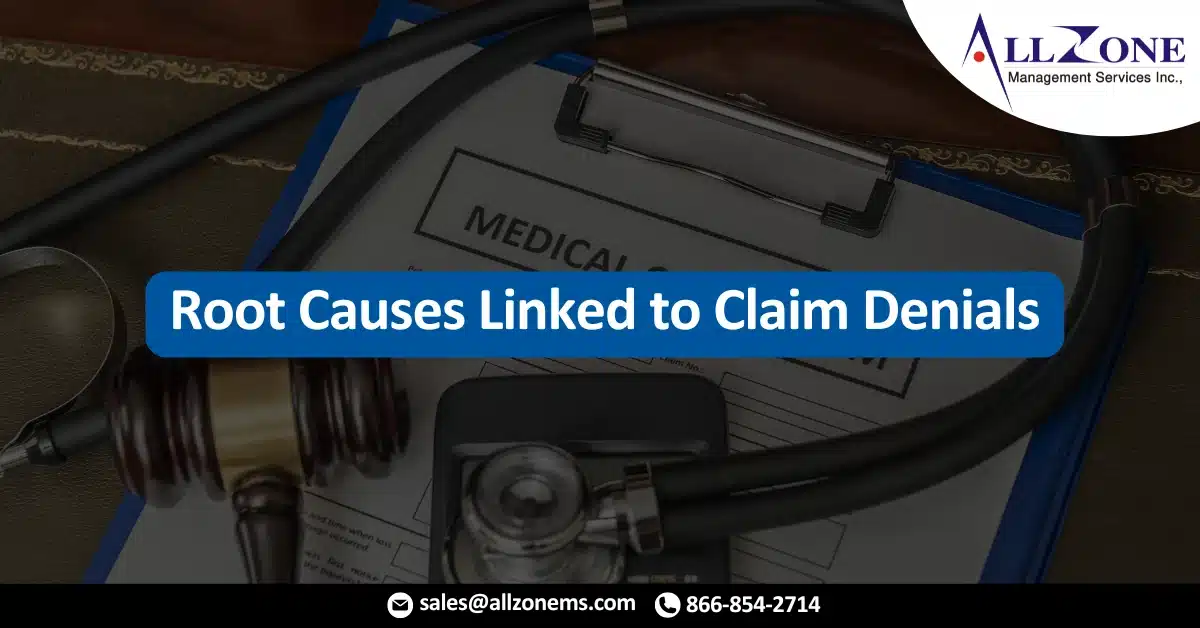Healthcare policies and rules are continuously changing, and it’s important to stay on top of what all insurance carriers are doing and how their changes impact your practice’s revenue cycle. This, as well as managing your accounts receivable (A/R), is the best way to ensure your cash flow does not bottleneck and cause damage to […]
A focus on front-end revenue cycle efficiency can help to avoid costly medical necessity denials. KEY TAKEAWAYS Four words often describe the efforts to prevent denials related to medical necessity: too little, too late. Mistakes are made early in the patient’s hospital stay, and these mistakes lead to problems down the road. What remains constant […]
Patient access is the first point of contact for patients and the first time staff can get key information right for revenue cycle management success. Patient access is generally the first encounter a patient will have with a healthcare organization, making it central to the patient experience. But this aspect of healthcare is also […]
The Covid-19 pandemic is transforming how physicians practice medicine and bill for it. Physicians who take a consumer-oriented approach to their billing cycle may adapt the best, says John Behn III, MPA, president of Stroudwater Revenue Cycle Solutions and a principal of Stroudwater Associates, a national healthcare consulting firm based in Portland, Maine. “We’ve seen […]
Effective revenue cycle management can reduce hospice claim denials, particularly those associated with billing or documentation errors. In addition to slowing down payments or losing revenue, submitting inadequate or incomplete required written documentation is a sure-fire way to bring surveyors or auditors to a hospice’s doorstep. As regulators increasingly fix their eyes on the hospice space, providers […]
Three revenue cycle tips are provided to reduce denied claims. Claim denials represent millions of dollars in lost and delayed net reimbursement annually. According to the American Medical Association (AMA), cost estimates of inefficient healthcare claims processing, payment, and reconciliation top out at $210 billion per year. Claim denials are so common, they’ve become a fixture […]
By now, many hospitals have received denials for emergency department level-of-care coding. We could legitimately ask, “how did this happen?” Today we shall address how it started, why it’s important, and potential institutional responses. Denials for emergency care are not new. The spectrum of denials and the audacity with which payers deny claims now strains […]
For many healthcare providers, claim denials are a frustrating cost of doing business. Each year, around 5-10% of medical billing claims are rejected (possibly more). With each claim costing around $25 to rework, providers lose billions in eroded revenue and productivity. Any revenue leakage is bad enough, but the shift towards value-based care means tighter revenue cycle management […]
Suggestions for conducting peer-to-peer appeals for denials. If you are wondering why you should read this if you think you are not a rebeginner, well, it is because you actually are one. Beginnings do not disappear, they just reproduce. Novices are just starting, veterans have started over and over. We all begin as beginners and […]
Undercoding, or reporting a lesser service than was performed and documented, is sometimes employed as a defensive strategy to stave off claims denials or audits. But, undercoding can make a provider an outlier, and may create consequential patient care, compliance, and financial liabilities. For example: Undercoding Leaves Money On The Table, Driving Down Provider Reimbursement […]










